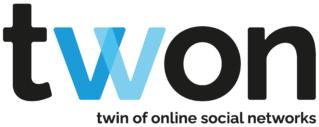TWONs can help understand the effects of platform design – but this can also be a risk.
Digital Twins of Online Social Networks (TWONs) are highly advanced and realistic computer models that mimic an original Online Social Network as closely as possible. They can simulate how and to what extent platform design, as well as specific algorithms, yield undesirable outcomes, such as societal polarization or the dissemination of incivil and harmful content. They can help us optimize the design of Online Social Networks with respect to social, ethical, and democratic objectives. Accordingly, TWONs might be a powerful tool for regulating platforms.
On the other hand, taming one technology by creating another can give rise to a number of risks of its own. With regard to TWONs, societal risks are immediately conceivable: By leveraging vast datasets about users and by intricately representing user behaviour, TWONs have the potential to be used in ways that are contrary to the interests of individuals and societies alike. This is why we must carefully examine ethical implications of different modes of regulating TWONs, so that decision makers get the tools at hand to make a well founded decision. There needs to be a public discussion on the usage and regulation of TWONs.
How-to ethics-TWONy: Should TWONs be accessible for the general public, or researchers only?
As TWONs can potentially be abused by actors with harmful interests, we need to carefully consider, whom to give access to it. And that’s where our tool ethics-TWONy comes into play.
Down below, you can find a set of statements that are either pro-general public access to TWONs, or pro limited researcher-only access. Simply drag and drop the statements you consider most convincing into the options basket. Then, click “calculate” and evaluate your own standpoint in the debate.
If the black line shifts to the left side of the bar, that means the pro-public access arguments resonated more with you. The further the black line is on the right side of the bar, the more statements you chose were pro-researcher-only access.
Read more about the ethical considerations of building the TWON here:
